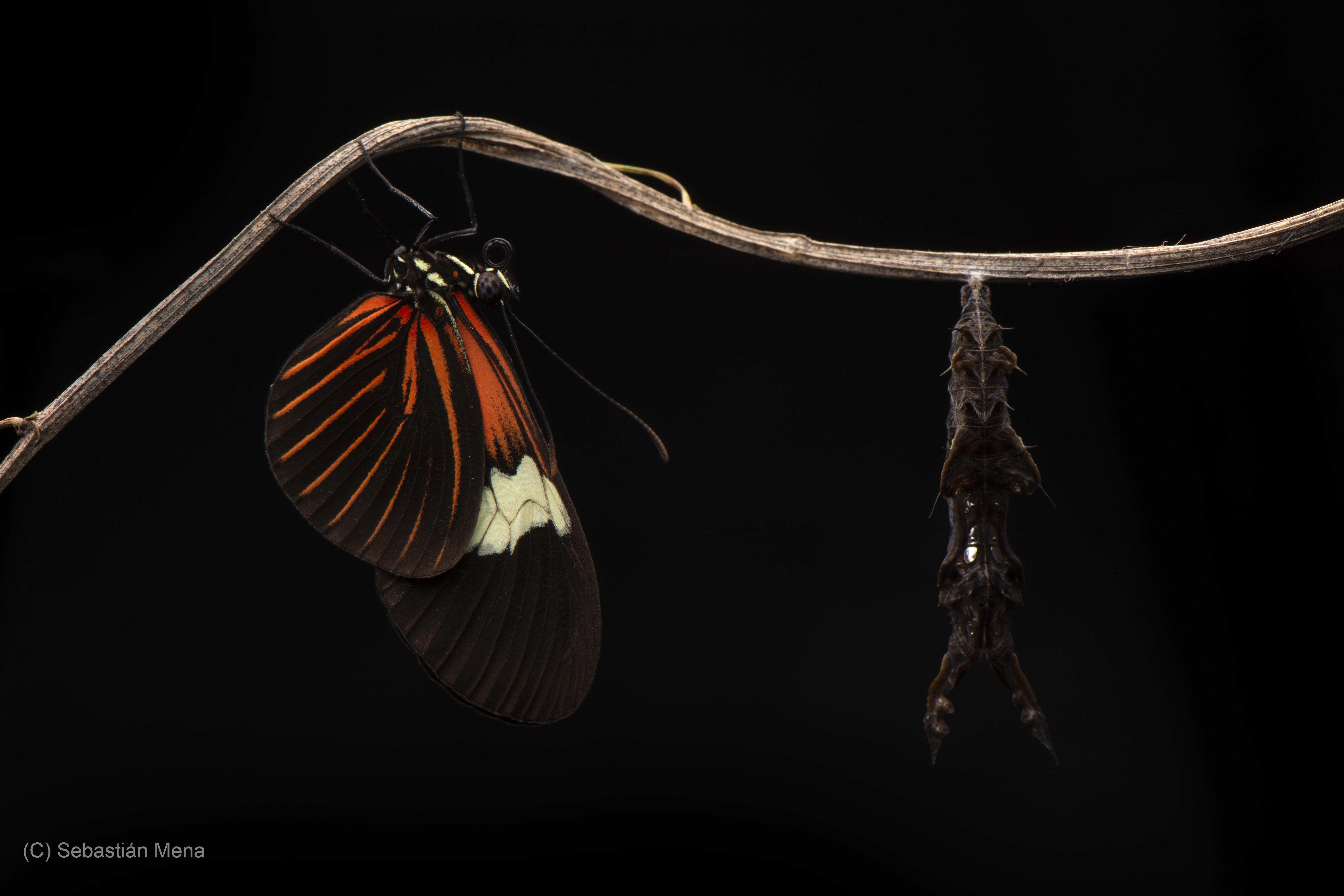
Ageing brains, metabolism and sleep
Supervisor: Professor Stephen Montgomery
Co-Supervisors: Dr Alice French & Dr Beth Nichols
We recently established the tropical butterfly genus Heliconius as a novel model system for the evolution of extended longevity. Across the Heliconiini tribe, maximum longevity varies by 25-fold and some Heliconius species live up to a year, compared to only a few weeks for some of their closest relatives. This increase in longevity is due to heritable mechanisms of slowed ageing in Heliconius, in conjunction with diet dependent plasticity. We have also shown that aged Heliconius show little sign of cognitive senescence, an effect that is robust to dietary restriction. Analyses of neural transcriptomes have revealed candidate mechanisms to support the evolution of longer healthspans of Heliconius brains. In parallel, we have established methods to record sleep patterns in these butterflies, and we have preliminary evidence of changes in the abundance of mitochrondria in neuronal cells between species. Sleep is of particular interest in this system, given its critical function in the maintenance of neural functions and memory consolidation, while both sleep and ageing have been suggested as consequences of aerobic metabolism. This project aims to test these links using comparative analyses across long and short lived Heliconiini butterflies, and experimental manipulations to quantify the effects of sleep on memory between species with distinct investment profiles in neural tissue, and whether this is in part mediated by effects of dysregulated metabolism.
Type of work
The student will have the opportunity to shape the project to their interests, but will likely mix behavioural experiments, with direct measurements of metabolism, and collection and analysis of cell/molecular data. We are particularly interested in performing comparative experiments across species within the Heliconiini, which show pronounced variation in longevity and senescence. This may involve fieldwork in Panama, where large insectary populations are maintained, but can also be based in the UK.
Importance of the area of research concerned
A major challenge of our ageing society is to extend the period of good health. Meeting this challenge depends on understanding the biological mechanisms that allow age-related senescence, and how these mechanisms can be manipulated. Aging is a fundamental biological process, and as such animal models can provide insights into ageing with more general relevance for human and animal health. A specific aim of this approach is to identify natural solutions that promote longevity in neural system, using an insect model of delayed senescence in a long-lived species.
References
Foley J, McPherson J, Roger M, Batista C, Mauxion R, Hernández G, Kelson R, Young FJ, McMillan WO, Montgomery SH. Evolution of increased longevity and slowed ageing in a genus of tropical butterfly. bioRxiv. 2025:2025-08. Young FJ, Montgomery SH. Pollen feeding in Heliconius butterflies: the singular evolution of an adaptive suite. Proceedings of the Royal Society B. 2020 Nov 11;287(1938):20201304.
